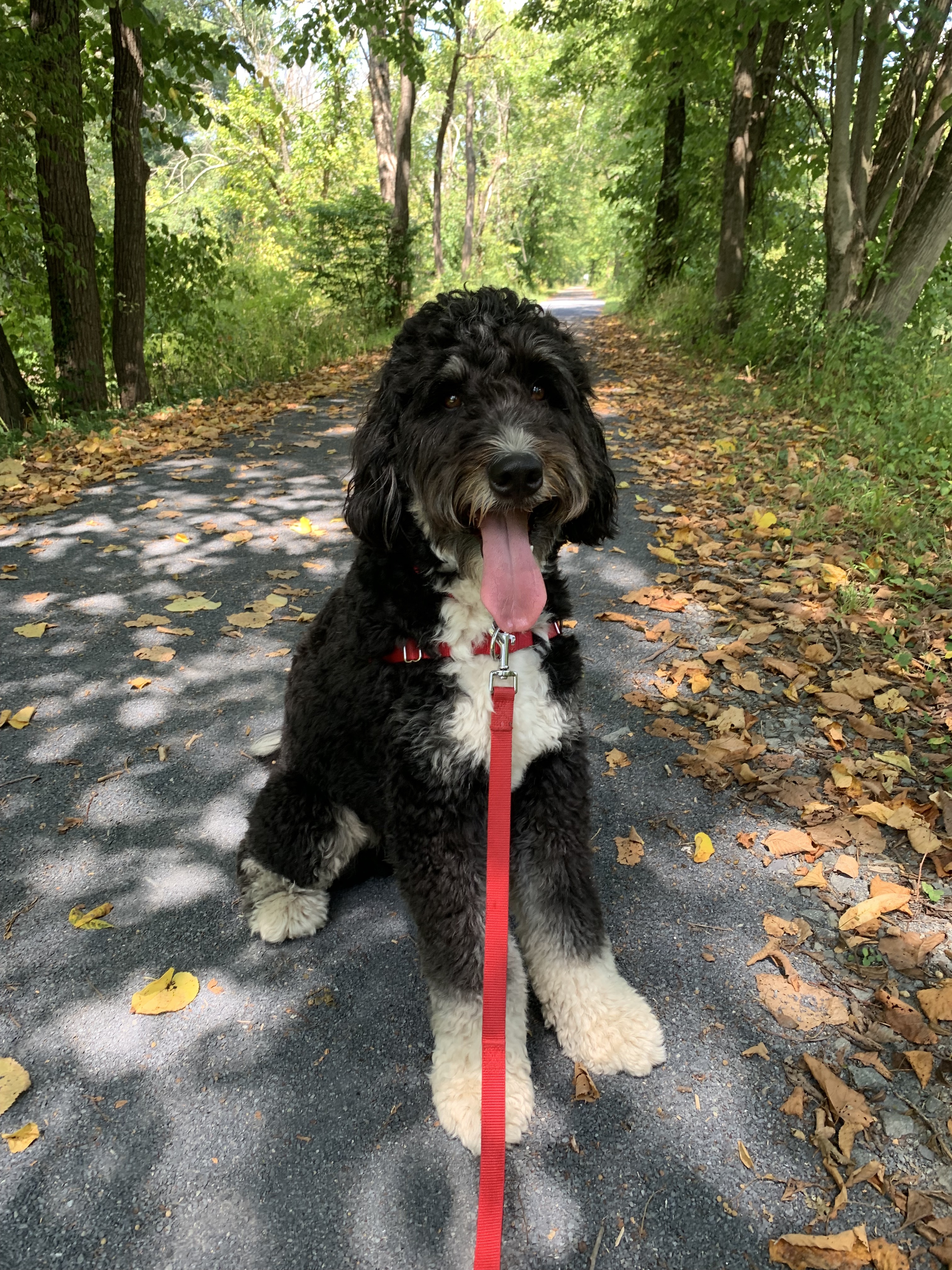Many dogs need to be housetrained well after their puppy months. If you move from a house to an apartment, your dog will not know exactly where to go since the usual outdoor location is no longer around. Sometimes after being fixed as an adult, a dog may have to go more frequently, and it is your duty to be around to let him or her out as often as needed. Adopted dogs from shelters and humane societies are rarely potty trained, and need to learn not only how this all works but where to go as well. Training an adult dog comes with its own challenges. Since a dog is usually in a new environment, there is a lot to remember and figure out. If you are not consistent or have the time to devote to training, it will take longer and can lead to more frustration for you and your dog. It is important to remember that dogs don’t like to make you upset or misbehave; dogs want the praise and love they receive when they act as you want them to. That being said, there are several things you can do to help the process along.
Be aware of the last time your dog went outside and when he or she last ate or drank a decent amount of water. Most adult dogs will have to go outside within an hour of eating. Generally, dogs have to go outside every two to three hours when they are drinking enough water to stay hydrated. On hot days, days when he or she exercises more than normal, or when he or she has an upset stomach, it might need to be more frequently. Even dogs that are fully potty trained need to be let outside at least four times a day for the purpose of eliminating wastes.
Reward good behavior and don’t punish bad behavior. This may sound tricky, but reward and punishment are terms your dog can understand. Praise your dog for going where he or she is supposed to, even rewarding with treats or playtime. Dogs can understand when a good action produces a positive reaction from you. However, punishing for bad behavior is not always appropriate or logical. If you come home to a mess, your dog has completely forgotten about it and has no clue why you’re mad. There’s also no way for him or her to fix it now. Even when catching your dog in the act, you have to be deliberate and focus on what you want your dog to do. Make a loud noise such as a clap or a shout (not of your dog’s name) to startle your dog. If you shout your dog’s name, he or she might associate it with panic or punishment, and your dog might not come when called in the future. Once you have your dog’s attention, hurry outside to the appropriate area and let him or her finish. Now you can praise your dog before returning to the scene of the crime.
Speaking of clean up, you might be hindering your dog’s training in the way you pick up accidents. Use cleaning solutions that are built to break down the urine and feces. This will eliminate the scent and keep your dog from going back to the same place over and over again. It is also best to pick up messes immediately and monitor your dog if he or she goes back to one area consistently. There might be a lingering scent that tells your dog this is a potty zone. Sniffing is actually a common sign of needing to go. Dogs are very vulnerable when they relieve themselves, therefore they sniff areas for signs of danger before relaxing enough. They also identify territory with scents and can be searching for their own territory before going.
All dogs learn at different rates like children learning how to read. Some pick up quickly and can move onto other training focuses, while others need extra time and help. A dog cannot learn overnight, just as a child cannot read chapter books after learning the alphabet. It can take several weeks before your dog doesn’t have an accident on a regular basis. But, if it does take more than a month, it might be time to discuss other possibilities with your vet. If the problems occur following an operation, it might be a sign of other issues. It can also help diagnose illnesses in adult dogs that might require medication or treatment. Older dogs can also lose the ability to hold their wastes. This can be helped with more frequent trips outside but also might require veterinary intervention. Some older dogs require dog diapers as they age if they are not able to get outside frequently enough or alert their owners to their needs.
In many ways, potty training an adult dog is very similar to training a puppy. With adult dogs, however, it might take more time if they have not been trained before. Training requires patience and an understanding of your own attitudes. Becoming frustrated and yelling at your dog won’t solve any problems, and your dog won’t learn. Using praise and consistency will help your dog understand what you want and what he or she can do to earn rewards. Our Swifto walkers are accustomed to a variety of dog situations, and will be more than happy to accommodate walking and cleaning up after an adult dog who isn’t potty trained.
Looking to book a dog walk?
By Callie T.


